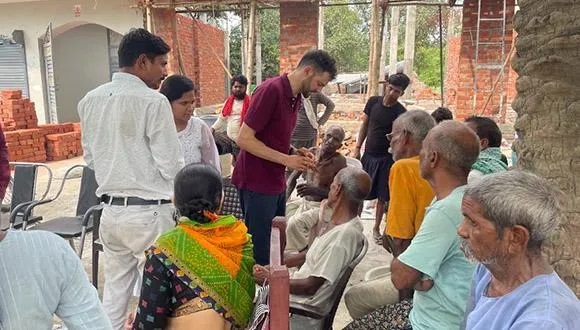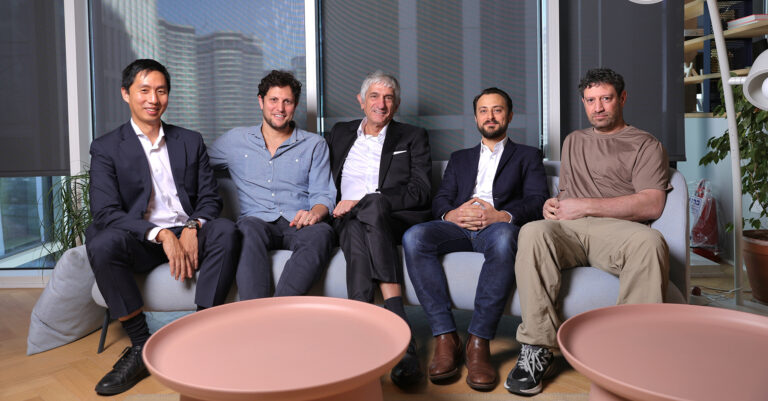Cyberattaque Petya : une solution trouvée par un israélien, diplômé du Technion

[:fr]Les Echos. Quelques heures après le démarrage de cette vague massive de rançongiciel, le chercheur israélien Amit Serper, diplômé du Technion en cyber-sécurité, aurait trouvé un moyen de ralentir la progression du virus. Comme pour WannaCry, la précédente cyberattaque mondiale ayant défrayé la chronique, une solution contre Petya (encore appelé NotPetya, Petna ou SortaPetya) a été trouvée mardi 27 juin dans la soirée. Quelques heures après le démarrage de cette vague massive de rançongiciel, un chercheur en cyber-sécurité travaillant pour Cybereason aurait trouvé un moyen de ralentir la progression de Petya.
Ce moyen est ce que l’on appelle un « kill switch ». Sans traduction en français, ce « bouton » est un fichier ou une adresse Internet que va chercher un virus avant de se propager. Si ce que cherche le virus est présent, il ne va rien faire.
Un fichier pour arrêter le virus
Comme le rapporte Silicon, Amit Serper est convaincu que l’installation d’un fichier intitulé « perfc.dll » représente ce fameux « kill switch » pour Petya et « vaccine » l’ordinateur contre l’attaque. De fait, le virus semble ne pas infecter la machine s’il détecte ce fichier, installé sur le disque local de l’ordinateur (C :).
Cette découverte a été validée par d’autres entreprises de cybersécurité, affirme Silicon, citant Bleepingcomputer. Un mode d’emploi a été mis en ligne pour tenter de se protéger. Wannacry avait de la même manière été contenu grâce à la découverte d’un jeune chercheur en cyber-sécurité, qui s’était aperçu que le « kill switch » se nichait sur un site Internet.
D’autres moyens existent pour ne pas voir son ordinateur « contaminé » par Petya. L’Anssi a ainsi conseillé aux internautes et entreprises françaises de mettre à jour leur version de Windows et de ne pas payer la rançon. Le responsable sécurité des réseaux Internet français a également conseillé de créer un fichier « perfc » sur son disque local. La solution semble donc validée, mais elle ne permet pas de « soigner » les machines déjà infectées.
Source Etienne Combier pour Les Echos 28/06/17
Voir aussi communiqué de Cybereason sur ce lien[:en]Cybereason Principal Security Researcher Amit Serper discovered a work around solution that disables the NotPetya ransomware that wreaked havoc in Europe on Tuesday. To activate the vaccination mechanisms users must locate the C:\Windows\ folder and create a file named perfc, with no extension name. This should kill the application before it begins encrypting files.
When first run, the NotPetya ransomware searches for its own filename in the C:\windows\ folder, and if it is found, will cease operating. Once the original file name was found and verified by two different sources, Amit was able to piece together a kill switch that should work for any instance of the original ransomware infection.
Source cybereason
Cybereason, developers of the most effective Total Protection Platform including EDR & NGAV, today announced that it has made available a new version of RansomFree, its award-winning free anti-ransomware tool. RansomFree 2.3.0.0 detects and prevents NotPeyta ransomware from executing on computers. RansomFree is the world’s most widely used free anti-ransomware tool with more than 350,000 small business and consumer users.
NotPetya encrypts files only after the machine is rebooted – unlike most ransomware that encrypts files as soon as it executes. NotPetya spreads throughout the network, extracts admin credentials, and schedules a task to reboot the machine. As soon as a victim reboots their machine, NotPetya overwrites the Master Boot Record (MBR) with a malicious payload that encrypts the full disk.
In related news, Cybereason’s Principal Security Researcher Amit Serper discovered a vaccination for NotPeyta that prevents the ransomware from running on any computer on which it is activated.
Follow Serper’s discovery on Twitter: https://twitter.com/0xAmit. To activate the kill switch, users must locate the C:\Windows\ folder and create a file named perfc, with no extension name. This should kill the application before it begins encrypting any files.
Cybereason was the first cybersecurity company to develop a free anti-ransomware tool and it was made available in December, 2016. RansomFree stops more than 99 percent of ransomware variants from encrypting files. RansomFree uses behavioral and proprietary deception techniques to target the core behaviors typical in ransomware attacks. It is designed to block never-before-seen ransomware in order to protect organizations against emerging ransomware threats. Today, more than 350,000 small businesses and individuals are using RansomFree.
Founded in 2012 by Lior Div,Yossi Naar and Yonatan Striem-Amit, Cybereason recently announced an infusion of new capital of $100 million from SoftBank Corp. This new financing solidifies Cybereason as the leading cybersecurity startup changing the status quo in the security industry, with 500 percent growth in revenue in the past year.
About Cybereason
Cybereason is the leader in endpoint protection, offering endpoint detection and response, next-generation antivirus, and managed monitoring services. Founded by elite intelligence professionals born and bred in offense-first hunting, Cybereason gives enterprises the upper hand over cyber adversaries. The Cybereason platform is powered by a custom-built in-memory graph, the only truly automated hunting engine anywhere. It detects behavioral patterns across every endpoint and surfaces malicious operations in an exceptionally user-friendly interface. Cybereason is privately held and headquartered in Boston with offices in London, Tel Aviv, and Tokyo.
[:]







